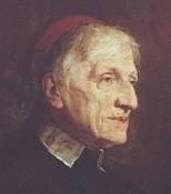 Whenever we bring up the record of the Church Fathers and writers of antiquity, our brethren from the various Eastern Orthodox tradition accuse us of citing them "out of context." The tit-for-tat quickly becomes an exercise in futility. Just be sure to examine the record for yourself, context and all. On the exercise of Petrine jurisdiction by Rome in the ancient Church, for example, here's a sampling:
Whenever we bring up the record of the Church Fathers and writers of antiquity, our brethren from the various Eastern Orthodox tradition accuse us of citing them "out of context." The tit-for-tat quickly becomes an exercise in futility. Just be sure to examine the record for yourself, context and all. On the exercise of Petrine jurisdiction by Rome in the ancient Church, for example, here's a sampling:
Pope St. Boniface (d. 422): "... it is clear that this Roman Church is to all churches throughout the world as the head is to the members, and that whoever separates himself from it becomes an exile from the Christian religion, since he ceases to belong to it's fellowship." (Ep. 14, 1)
 Pope St. Leo The Great (d. 461): "Though priests have a like dignity, yet they have not an equal jurisdiction, since even among the most blessed apostles, as there was a likeness of honor, so was there a certain distinction of power, and the election of all being equal, pre-eminence over the rest was given to one, from which type the distinction between the bishops also has risen, and it was provided by an important arrangement, that all should not claim to themselves power over all, but that in every province there should be one, whose sentence should be considered the first among his brethren; and others again, seated in the greater cities, should undertake a larger care, through whom the direction of the Universal Church should converge to the one See of Peter, and nothing anywhere disagree with its head." (Ep. 14)
Pope St. Leo The Great (d. 461): "Though priests have a like dignity, yet they have not an equal jurisdiction, since even among the most blessed apostles, as there was a likeness of honor, so was there a certain distinction of power, and the election of all being equal, pre-eminence over the rest was given to one, from which type the distinction between the bishops also has risen, and it was provided by an important arrangement, that all should not claim to themselves power over all, but that in every province there should be one, whose sentence should be considered the first among his brethren; and others again, seated in the greater cities, should undertake a larger care, through whom the direction of the Universal Church should converge to the one See of Peter, and nothing anywhere disagree with its head." (Ep. 14)
Pope St. Gelasius (d. 496): "Yet we do not hesitate to mention that which is known to the Universal Church, namely, that as the See of Blessed Peter the Apostle has the right to loose what has been bound by the judgments of any bishops, whatsoever, and since it has jurisdiction over every church, so that no one may pass judgment on its verdict, the canons providing that an appeal should be to it from any part of the world, no one is permitted to appeal against its judgment." (Thiel, Ep. 26)
Pope St. Agatho (d. 681): "... Peter's true confession was revealed from heaven by the Father, and for it Peter was pronounced blessed by the Lord of all; and he received also, from the Redeemer of us all, by a threefold commendation, the spiritual sheep of the Church that he might feed them. Resting on his protection, the Apostolic Church (of Rome) has never turned aside from the way of truth to any part of error and her authority has always been faithfully followed and embraced as that of the Prince of the Apostles, by the whole Catholic Church, and by all the venerable Fathers who embraced her doctrine, by which they have shone as most approved lights of the Church of Christ, and has been venerated and followed by all the orthodox doctors..." (Mansi XI, p. 233)
See also the following page of links concerning Eastern Orthodoxy



0 comments:
Post a Comment